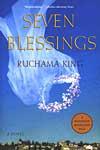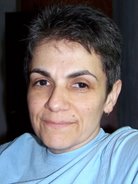
Continued from previous page
Another way of phrasing the question is: Who are we loyal to – our selves, our family, our tribe? And is writing an inevitable betrayal?
People write out of love and out of anger. Who is more loyal than the angry son or daughter? Could Roth and Englander be the loyal opposition?
And yet how easy it would be for us to say and write and reveal all.
I have felt in the late hours of the night the incredible power of saying and writing everything that could be said, only to throw it away (and deprive my audience?) in the morning. It can be oddly freeing to write with restrictions. Some of the most profound poems and books have been written for children. And everyone knows children can’t be shown and told everything. It would be harmful.
The relationship between an audience, society, culture and the inner imagination of the writer is dynamic. The elements are forever shaping each other.
Imagine what it would be like to cook without salt. And yet baking without yeast yielded matza, the bread of freedom (and poverty). A wealth of choices can restrict. Limits paradoxically can free.
We write from anger and love, and from the impoverishment of our imagination and the wealth of our fantasies.
Would you tell a story, even if it killed your father – and by father I mean our inheritance, our community, our ancestors, our received traditions? What if it made a good story? What if telling that story (or killing your father) was a way of saving your own life? Would you do it? And what if that story (or killing your father) made you rich and famous? How do we know why people are writing? Can we ever know?
Somehow this all reminds me of Hawthorne’s “The Birthmark.” Hawthorne, of course a religious man, knew well to wander in the spaces between greed and virtue, perfection and beauty. A scientist wanted to rid his beloved of the one imperfection – a birthmark on her cheek. Having found the right formula, he succeeded in dissolving the mark, only to watch her life ebb and disappear. In our quest for perfection in art, we are in danger. Saying it all, revealing it all, may be killing it all. And in our quest for complete loyalty to religion, we may be killing religion, too. If we’re not disloyal, can we ever be loyal? There would be no loyalty without a taste of disloyalty.
Maybe we really need to kill our fathers to tell the story, because telling the story is ultimately what keeps us all alive.
Ask the fathers what they think. How should we approach them? What should we do? What should we say?
“Ask your father and he will tell you…” (Deut. 32:7) After all, they had fathers, too. They told a story, and yet they were able to keep their own fathers alive.
Ruchama King is the author of “Seven Blessings” (St. Martin’s Press), a novel about love and faith in Jerusalem. This article originally appeared in The Jewish Week.
Return to main page to comment on article.

No comments:
Post a Comment